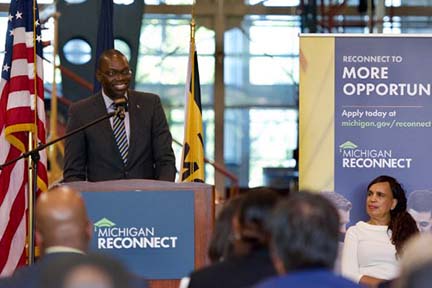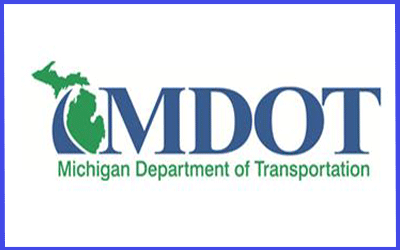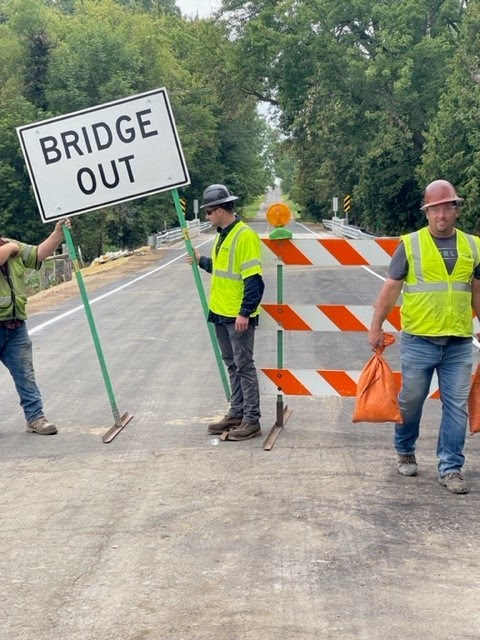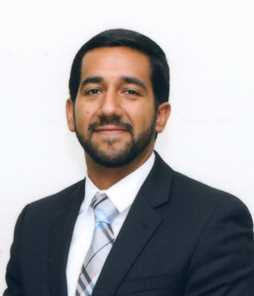
by orionontv | Aug 31, 2022 | Regional News

Lt. Governor Gilchrist Highlights $55 Million Expansion of Michigan Reconnect Program to Provide Tuition-Free Higher Education and Skills Training
FLINT, Mich. – Today, during an event at Mott Community College, Lt. Governor Garlin Gilchrist touted the bipartisan Fiscal Year 2023 budget’s inclusion of $55 million to fully fund the Michigan Reconnect program and encouraged working-age Michiganders to join the more than 100,000 people who in the last 18 months have taken the first step towards earning a college degree or skills certificate through the Michigan Reconnect program.
“I am proud to celebrate the historic progress we have made helping more Michiganders get tuition-free education and skills training,” said Lt. Governor Garlin Gilchrist II. “In the 18 months since we launched Michigan Reconnect, we have seen more than 100,000 people accepted into the program and provided ongoing funding through next year’s state budget. Those are big wins, but the biggest winners are the hardworking Michiganders taking advantage of this trailblazing program. Governor Whitmer and I are grateful to our legislative partners and Reconnect advocates for their hard work, and we will continue working with anyone to create opportunity for Michiganders in every community.”
The Michigan Reconnect program, which provides free or reduced community college tuition for students 25 and older who have not yet earned a degree, was launched in February 2021.
Lt. Governor Gilchrist was joined by Department of Labor and Economic Opportunity’s Office of Sixty by 30 Director Sarah Szurpicki, Mott Community College President Dr. Beverly Walker-Griffea, Flint and Genesee Group COO Kristina Johnston, and Michigan Reconnect students Kai Washington and Jennifer Cronkright.
“The Michigan Reconnect program is all about helping people achieve their dreams,” said Sen. Ananich. “As the Democratic leader of the Michigan Senate, I am proud to be part of the bipartisan effort to help remove barriers and ease the way for adult learners on the road to achieving their higher education goals. Whether you’re right here at Mott or another one of our excellent community colleges around the state, opportunities are available to you. Folks deserve our support as they look to maximize their career potential and area employers need programs like Michigan Reconnect to bring more highly skilled workers into their businesses.”
The event’s aim was to highlight how programs such as Michigan Reconnect and Futures for Frontliners are creating a rewarding path to in-demand careers for Michiganders and to encourage more participation in the Michigan Reconnect program.
“As a state, we’re obviously focused on the economic benefits of education: to individuals, their families and their communities,” Szurpicki said. “But what we hear from our Reconnect students is that the benefit goes far beyond the economic impact. They set out to accomplish something difficult, and they feel pride. They feel hopeful. They feel confident. And their families feel proud of them, too. And I believe those rewards, while harder to measure, will continue to benefit them throughout their lives. We need to encourage even more Michiganders to start on the road to higher earnings and a more secure future.”
Dr. Walker-Griffea praised the Reconnect and Futures for Frontliners programs as vital in overcoming the barriers that often stand in the way of a college education for so many adult students. She pointed to the growing number of enrollees at Mott Community College. Since the programs began, the college has enrolled 1,094 Reconnectors and 1,142 Futures for Frontliners participants.
“Our mission here at Mott Community College is to provide high-quality, accessible and affordable educational opportunities that cultivate student success and improve the overall quality of life in our multicultural community,” Walker-Griffea said. “We continue to make great strides in that endeavor, and our partnership with the Michigan Reconnect and Futures for Frontliners programs has added significantly to that growth.”
Johnston praised Michigan Reconnect and the new investment as vital to economic growth in the Flint and Genesee County area.
“The Flint and Genesee County area prides itself on the reliability and adaptability of our talent pool,” she said. “We know that a strong talent pipeline is a key factor in retaining good jobs in our community and growing new ones by attracting investment. The continued investment in, and enhancement of, Michigan Reconnect represents a critical piece of strengthening that pipeline.”
Jennifer Cronkright, a married mother of three grown children, and her family understand the value of the Reconnect program. At 45, Cronkright always had her sights set on a college education. But life repeatedly got in the way. Her education was first derailed shortly after high school when illness forced her to drop out of college. Later, financial considerations and a need to put family first prevented Cronkright from going back to college.
“Life happened,” Cronkright said. “I didn’t have the money to go back to school. That was a huge factor. I had been trying to go back to school and there was just roadblock after roadblock.”
Then Michigan Reconnect came along, giving Cronkright what she called, “a second life.”
Kai Washington, 27, also credits Michigan Reconnect with changing her life.
Her college dreams were dashed after she suffered several major medical problems, the loss of her infant son and mounting educational debt.
While she was recovering from a stroke, a friend suggested she look into Michigan Reconnect — and that has made all the difference. She plans to open a soup kitchen focusing on food justice after she graduates with a degree from Mott in culinary arts.
“My journey in culinary is nontraditional, just like my life,” Washington said.
Lt. Governor Gilchrist also highlighted $6 million in grant funding now available to help cover other costs that often keep adult learners returning to college or enrolling for the first time.
The new grants, which will be distributed by the state’s community and tribal colleges, can be used for books, childcare, internet access and transportation to help students pursue associate degrees or skills certificates. Mott Community College and other eligible institutions can distribute the allocated funds directly to eligible students who have completed at least one semester with their scholarship program – with as much as $550 available per student per academic year.
To be eligible for the grants, students must:
- Be Michigan Reconnect or Futures for Frontliners scholarship participants.
- Have completed at least one semester within the respective scholarship program they are participating in.
- Be enrolled already or be in the process of enrolling for a qualifying semester.
The wraparound grants build on Michigan’s network of people and resources in place to provide students with the critical support they need to successfully enroll in classes and complete a Pell-eligible skill certificate or associate degree program.
To help Reconnect students succeed with the steps leading up to enrolling with a community college, the state’s Reconnect Navigators are available to help applicants complete admissions and financial aid requirements, set career goals, identify relevant educational opportunities and create a plan to graduate. Navigators reach out to students after they have been accepted into the Reconnect scholarship, and will also connect students to additional programs and assistance offered by their community college and local partners to remove barriers to education.
Since Michigan Reconnect launched, over 100,000 Michiganders have been accepted into the scholarship program and more than 18,000 have enrolled in a community college, helping to drive success toward Gov. Whitmer’s Sixty by 30 goal of having 60% of Michiganders with a postsecondary degree or skills certificate by 2030. In Genesee County alone, there have been approximately 5,700 Reconnect applicants accepted into the scholarship program.
Michigan Reconnect is the largest effort in state history to ensure that Michiganders who are 25 or older and do not have a college degree have an opportunity to earn an associate degree or skills certificate with free or deeply discounted tuition.
Michigan Reconnect pays the cost of in-district tuition for eligible adults who want to pursue an associate degree or skills certificate at any of Michigan’s public community colleges, including its three tribal colleges. Eligible residents can attend community college tuition-free at a community college where they are considered in-district. For those who are not considered in-district by a community college, Michigan Reconnect will still cover up to the in-district portion of tuition.
|

by orionontv | Aug 31, 2022 | Regional News

Gov. Whitmer Calls on Big Tech to Protect Data and Privacy
Governor’s letter requests immediate action to protect privacy as efforts are underway to use personal data to target women seeking health care, prosecute nurses and doctors
LANSING, Mich. — Today, Governor Gretchen Whitmer sent a letter to the leaders of Apple, Alphabet, Amazon, Meta, and Microsoft, five of the world’s biggest tech companies that manage nearly every American’s data. She called on them to take additional steps to protect people’s data, especially health data, as extremists try to weaponize it to go after women seeking reproductive health care and prosecute nurses and doctors for doing their jobs. She also called on the companies to be more transparent about what data they are providing and to whom. This letter follows reports of law enforcement in other states using Facebook data to go after women seeking abortion care. Today’s action builds on the governor’s leadership to protect reproductive freedom.
“Every Michigander deserves privacy and control over their data, which includes so much personal information about our health, habits, and lives,” said Governor Whitmer. “We know the risks of someone getting access to our data. If it fell into the wrong hands, our digital footprint could tell someone where we are, who we were with, what we bought—even intimate details about our health. Without adequate protections, that data could be used to go after women seeking reproductive health care or to prosecute nurses and doctors for doing their jobs. Amid an ongoing assault on women’s bodily autonomy by extremists who do not hesitate to use location and health data to target Michiganders, we must do more to protect everyone’s fundamental right to privacy. While some elected officials take steps to control and surveil women, nurses, and doctors, I am fighting like hell to protect Michiganders’ freedom and privacy.”
“As custodians of our most sensitive data, Apple, Alphabet, Amazon, Meta, and Microsoft have a responsibility to protect their customers and their privacy,” continued Governor Whitmer. “I am grateful for the steps you have already taken—to varying degrees—to enhance digital privacy, but your work to protect our data must be an ongoing effort. Trust—in government and the private sector—is a precious resource, and firms that value privacy will benefit their shareholders by fostering a transparent relationship that prioritizes the needs of their users.”
Background on Governor Whitmer’s Letter to Big Tech
The governor’s letter called on Apple, Alphabet, Amazon, Meta, and Microsoft to bolster their efforts to protect personal data. As reproductive freedom is under attack and extremists seek to use location and health data to go after women, nurses, and doctors, the governor called on big tech to do more to protect their fundamental right to privacy and bodily autonomy. Her letter asked them to do the following:
- Provide users with clearer mechanisms to opt out of data retention and sharing for sensitive health information, including any sale of such data to third parties. These mechanisms should be paired with additional steps to protect user data, such as automatically deleting such data after a set period of time.
- User information should be provided to law enforcement only in response to requests that conform to the relevant law. Whenever legally possible, companies must notify users when law enforcement make a request for their communications or personal information.
- Companies must make information publicly available about requests they receive for sensitive health data and other information that could be used to prosecute women for seeking health care. They must publish and regularly update information about all such requests received for user communications or information concerning reproductive health or other health matters, including search histories.
Governor Whitmer’s Actions to Protect Reproductive Freedom
- April 7: Filed a lawsuit to ask the Michigan Supreme Court to immediately resolve whether Michigan’s constitution protects the right to an abortion.
- April 7: Penned an op-ed in the Detroit Free Press explaining her action and highlighting that 7 in 10 Michiganders support the rights affirmed by Roe.
- May 3: Joined 16 other states to urge the United States Senate to pass the Women’s Health Protection Act and enshrine Roe’s protections in federal law.
- May 9: Penned an op-ed in the New York Times explaining why she isn’t waiting for Congress to act and urging fellow pro-choice governors, state representatives, private businesses, and citizens to take action to protect reproductive rights.
- May 25: Signed an executive directive instructing state of Michigan departments and agencies to identify and assess opportunities to increase protections for reproductive healthcare, such as contraception. The executive directive also instructs departments not to cooperate with or assist authorities of any state in any investigation or proceeding against anyone for obtaining, providing, or assisting someone else to obtain or provide reproductive healthcare that is legal where the health care is provided.
- June 23: Launched a new consumer website to educate Michiganders about the availability of no-cost contraception with most insurance plans.
- June 24: On the day of the Dobbs decision, filed a motion urging the Court to immediately consider her lawsuit.
- June 27: Followed up with an additional notice to the Court urging them to immediately consider her lawsuit.
- June 29: Sent a letter to Michigan’s insurers urging them to take steps to ensure Michiganders have coverage for reproductive health care to the fullest extent possible under current coverage.
- July 6: Joined with the Michigan Department of Health and Human Services to launch a public effort to educate Michiganders and health care providers about the difference between emergency contraception and medication abortion. The public effort will disseminate information about the differences between medication abortion and emergency contraception to all local health departments throughout Michigan, healthcare providers throughout the state, and the public.
- July 7: Called on the federal government to clarify and protect Michiganders’ right to cross the US-Canada border to seek reproductive health care or prescription medication including medication abortion.
- July 11: Urged President Biden to make birth control available over the counter without a prescription.
- July 13: Signed an executive order refusing to extradite women or health care providers who come to Michigan seeking reproductive freedom.
- July 22: Called on FDA to reduce barriers to medication abortion.
- August 1: Secured a restraining order blocking certain county prosecutors from enforcing the 1931 abortion ban after a court cleared a path for them to do so earlier on the same day.
- August 3: Went to court to defend the restraining order and won.
- August 4: Filed renewed request with Michigan Supreme Court to protect right to abortion.
- August 4: Submitted legal brief to prevent enforcement of extreme 1931 abortion ban.
- August 10: Filed motion for a preliminary injunction against 1931 abortion ban in Oakland County Circuit Court.
- August 19: Won a preliminary injunction against the 1931 abortion ban, protecting legal abortion in Michigan until the Michigan Supreme Court takes up the governor’s lawsuit or Michiganders vote to protect women’s fundamental rights.
|

by orionontv | Aug 30, 2022 | Transportation
FOR IMMEDIATE RELEASE MEDIA CONTACT
August 29, 2022 Dan Weingarten
906-250-4809
WeingartenD@Michigan.gov
Another MDOT bridge bundling project reopens to traffic,
ahead of schedule
Fast facts:
– The Michigan Department of Transportation (MDOT) bridge bundling pilot project moved forward as the Dennis Road bridge over Doan Creek in Ingham County reopened to traffic Friday.
– The pilot currently encompasses major improvements on 19 locally owned bridges in 2022.
– MDOT’s online dashboard at Michigan.gov/BridgeBundling allows the public to track progress on the projects.
LANSING, Mich. – The Michigan Department of Transportation (MDOT) bridge bundling pilot project continues to move forward, with an Ingham County bridge reopening to traffic Friday, Aug. 26.
The Dennis Road bridge over Doan Creek, south of Williamston, reopened about a week early after major repair work. The bridge, built in 1945, was in serious condition, resulting in reduced load restrictions posted on the bridge before the repairs.
Twelve local agency bridge bundling projects are now largely finished, with work on seven others ongoing. Another structure, the Tallman Road bridge in Clinton County, is close to completion and is expected to be finished this week.
This year’s bridge bundling pilot project, the first of its kind in Michigan, is repairing 19 bridges in serious or critical condition that are owned by local agencies. Each bridge will have its superstructure replaced, which includes full removal and replacement of the bridge deck and supporting beams.
All of the bridges encompassed by the bridge bundling program will be completed within 60 or 90 days from the start of repairs.
The pilot project is funded by Federal Highway Improvement Program (HIP) dollars. MDOT bridge staff and consultants are doing preliminary design and construction administration work for the bridge bundling program.
An online dashboard at Michigan.gov/BridgeBundling provides project updates and shows percent completion, detour routes, and other information for each project.
The pilot program is only the first phase of the bridge bundling initiative. $196 million in federal COVID relief funds appropriated by Gov. Gretchen Whitmer and the Legislature will allow the state to execute Phase II of the bridge bundling program, beginning planning and development later this year, to address 59 more bridges.
A list of the Phase II bridges, which were prioritized based on regional mobility and safety, is available here. Phase II focuses on closed and load-posted bridges. Some will be permanently removed while others will be fully replaced.
MDOT expects bridge bundling, which covers several bridge locations under one contract, to streamline coordination and permitting, increase economies of scale, and improve bridge conditions on local routes around the state. MDOT is working to expand the approach, already in use on state trunkline projects, to address locally owned bridges.
###
Driving safely in work zones saves lives! Protect MI work zones by taking the pledge.
www.twitter.com/MichiganDOT | www.facebook.com/MichiganDOT | www.youtube.com/MichiganDOT

The Dennis Road bridge over Doan Creek in Ingham County was in serious condition before being repaired as part of the Michigan Department of Transportation (MDOT) bridge bundling pilot project. The bridge was reopened to traffic Friday, Aug. 26, after fewer than 60 days of work. The pilot encompasses major improvements to 19 locally owned bridges in 2022. (Photo courtesy of RS&H)

The Michigan Department of Transportation (MDOT) bridge bundling pilot project moved forward as the Dennis Road bridge over Doan Creek in Ingham County reopened to traffic on Friday, Aug. 26. (Photo courtesy of RS&H)

by orionontv | Aug 30, 2022 | Transportation
How using technology to curb speeding in work zones has worked in other states
In 2006, Illinois became the first state to authorize the use of automated traffic enforcement programs to enforce speed limits in highway work zones, with implementation coming a few years later. The enabling legislation provided a legal framework for photo enforcement of speed limits in highway work zones.
Listen now: https://www.buzzsprout.com/1374205/11228543-how-using-technology-to-curb-speeding-in-work-zones-has-worked-in-other-states


Last week, some Michigan lawmakers, Michigan Department of Transportation (MDOT) officials, and leaders in labor organizations and the road building industry witnessed demonstrations on Michigan freeways of how the technology works.
On this edition of the Talking Michigan Transportation podcast, first, a conversation with Juan Pava, Safety Programs Unit chief, Bureau of Safety Programs and Engineering at the Illinois Department of Transportation, about how the enforcement has worked there.
|

Later, Lance Binoniemi of the Michigan Infrastructure and Transportation Association (MITA), talks about why he and his members are advocating for House Bill 5750, and what he learned from the demonstrations.
Some key themes:
- Both transportation professionals and researchers generally agree that active enforcement is the most effective way to reduce speeding in work zones. However, speed enforcement in work zones is not always as simple as posting police in the work zone. Oftentimes work zones are not conducive to active enforcement by officers. For example, the work zone layout may limit both the number of safe locations where officers can position their vehicles and the number of pull-off areas where violators can be stopped.
- Active enforcement may also mean that officers will need to leave the work zone to cite a vehicle (which decreases enforcement visibility) or step out of their vehicles in the work zone (which opens them up to the risk of being struck by a passing vehicle).
- Alternatively, photo speed enforcement systems provide active enforcement while remaining stationary, and they can consistently cite more drivers, which can increase compliance with posted speed limits.
- Another benefit of using fixed camera systems is that they don’t require officers to risk injury or death by exposing themselves to vehicles moving at high speeds through the work zone. Studies of these systems in general have shown that their use could result in a reduction in injury crashes of as much as 20 to 25 percent.
|
|
|

by orionontv | Aug 29, 2022 | Regional News
| FOR IMMEDIATE RELEASE:
August 26, 2022 |
|
AG Nessel Advocates to Cut Rate Increase by More Than Half
|
|
| LANSING – The Department of Attorney General filed testimony before the Michigan Public Service Commission (MPSC) to advocate for reducing Consumers Energy’s requested rate increase by over 50% and reducing the increase in residential rates to less than 3%, Attorney General Dana Nessel announced today.
Consumers Energy filed its application to the MPSC seeking a rate increase of approximately $274 million ($266 million for the Michigan jurisdiction) on April 28, 2022, to be implemented in 2023. If the company’s proposal is approved as filed, the overall rate impact would be an increase of 6.5% for all rate classes with the impact on residential being an increase of 6.8%.
The Department of Attorney General retained an expert witness and through expert witness testimony Nessel recommended among other things, that rates be increased by $123.8 million at most with residential customers receiving a 2.88% or 63.1 million rate increase compared to the $145.2 million increase that they would receive under Consumers proposal. The overall rate increase for all ratepayers would be 3.02%.
“Michigan consumers are already struggling to make ends meet,” said Nessel. “They simply cannot afford a substantial increase in the cost of their utility bills, and I am committed to using the resources of my office to ensure no resident pays more than is absolutely necessary for reliable energy.”
In addition to the proposed reduction to Consumers request, Nessel recommended that that the Commission establish a revenue deferral mechanism to ensure that the Company is held accountable to achieve service reliability goals. Under the Attorney General’s proposal, a Service Reliability Accountability Mechanism (SRAM) would be established requiring Consumers to defer 20% of the revenue related to certain reliability related programs subject to meeting certain reliability goals. If the Company fails to meet the goals, the deferred amount would be refunded to ratepayers since the failure indicates that ratepayers did not receive the reliable service they paid for.
The Attorney General’s expert testimony also challenged Consumers Energy to reduce the amount it proposes to spend in this case on capital expenditure and operating costs when it files its rebuttal testimony to provide relief to ratepayers in light of the higher cost-of-living due to inflation across the economy and implored the Commission to adopt his and other parties’ proposed reductions to the company’s requested rate increase to provide relief to ratepayers. Consumers Energy has until September 15, 2022, to file rebuttal testimony.
Since taking office, the Attorney General has saved Michigan consumers nearly $2 billion by intervening in utility cases before the MPSC.
Consumers Energy provides electricity to approximately 1.9 million people throughout Michigan and natural gas to 1.8 million customers across the state. |
|

















